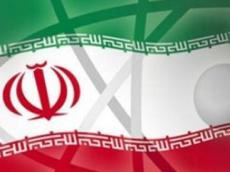|
|
TODAY.AZ / World news
Trust and flexibility - key points in upcoming "Iran-Six powers" talks
26 April 2012 [16:24] - TODAY.AZ
 Baghdad is getting ready to host the next round of "Iran-Six powers" nuclear negotiations on May 23. Both sides are weighting their advantages at the upcoming talks, yet most experts believe that no real breakthrough should be expected from the Baghdad meeting.
Baghdad is getting ready to host the next round of "Iran-Six powers" nuclear negotiations on May 23. Both sides are weighting their advantages at the upcoming talks, yet most experts believe that no real breakthrough should be expected from the Baghdad meeting.While Iran tries to prove itself among the regional neighbors, it needs to be flexible, when required. In this particular case - the upcoming talks in Baghdad. Same can be said about the European side.
Once the negotiating sides can feel the mutual trust, the negotiating process would become less painful, dragging, and the sides would express more flexibility regarding the sensitive subject of Islamic Republic's nuclear program.
Iran at this point needs to maintain the balance - stand by its position and at the same time be ready for sacrifices at the upcoming negotiations with 5+1 group (the U.S., Britain, France, China and Russia, plus Germany), especially following the "constructive" talks in Istanbul on April 14.
Because after July 1, when the sanctions on Iran's oil exports will be officially launched, the talks after that date might be going on a completely new level, if they will at all.
Speaking of the "hosting grounds", Baghdad is not the safest place on the planet, especially considering the recent bomb blasts in Iraqi capital.
Now while the attacks in Iraq mostly had political context regarding the government of Nuri al-Maliki and Sunni rivals, the "Iran-Six powers" meeting, being quite an important event, could have been hosted elsewhere.
Iran understands that the sanctions imposed on the country do their damage, otherwise country's officials wouldn't be urging for the sanctions to be halted before the Baghdad talks.
Country's Oil minister Rostam Qasemi said that Iran will cut oil export to all European countries if they do not lift the sanctions. Islamic Republic has already started cutting off its oil consumers (such as Greece), and sooner or later Europe will have to be looking for a substitute, if the sanctions are not lifted.
Another problem here, according to economic experts, is that switching oil suppliers is difficult on a technical level as well.
Worst Case Scenario
Iran favors the diplomatic way of resolving problems with its nuclear program, since a possible attack on it would not only turn the whole region into a bloodbath, but also because in case of military option, most countries of the region and Europe as well, will support the United States.
Right now, the mentioned military attack remains the worst case scenario, as neither Iran nor the U.S. want to get involved into it at this time. There are numerous reasons for both countries to be restraining from the open war.
Iran doesn't hold down from making strong statements, yet the Islamic Republic very well knows the military power of the U.S., all of which will be crushed upon it, if the war breaks out.
The U.S. on the other hand doesn't feel like attacking Iran either, firstly because there are presidential elections coming up in November, secondly because the Western power already has its hands full with Iraq and Afghanistan.
The third reason here is a simple one - the U.S. does not know exactly how big Iran really is, military wise. Since Islamic Republic has been viciously protecting itself from the outside world, this is a trump-card.
Israel goes further - stating that Iran simply buys itself more time to make sure its nuclear facilities would be "out of reach" in case of an attack.
The Jewish state has not ruled out an attack on Iran's key nuclear objects, yet so far, it's official position is to continue using sanctions against Iran, to force it drop the nuclear program development.
S. Isayev /Trend/
URL: http://www.today.az/news/regions/106045.html
 Print version
Print version
Views: 4001
Connect with us. Get latest news and updates.
See Also
- 22 April 2025 [08:00]
New Android virus discover that steals bank card data via NFC - 21 April 2025 [23:23]
Hungarian wines receive prizes of international competition - 21 April 2025 [22:50]
Kazakhstan strengthens its position on world tourist map - 21 April 2025 [21:43]
Special beach for visually impaired open in Abu Dhabi - 21 April 2025 [21:20]
New evidence of Mars' wet and warm past discover - 21 April 2025 [20:38]
Hyundai electric buses to run on Japan's ecologically sensitive Yakushima Island - 21 April 2025 [20:19]
London increase production of artillery shells in order not to depend on United States - 21 April 2025 [19:04]
Azerbaijan introduces e-sick leave system for employee benefits - 21 April 2025 [12:08]
Pope Francis has died, Vatican says in video statement - 21 April 2025 [10:56]
Vatican urges dialogue as US immigration stance faces scrutiny in Rome meetings
Most Popular
 What von der Leyen doesn't know about. Or doesn't want to know
What von der Leyen doesn't know about. Or doesn't want to know
 Culture Minister meets with Kyrgyz counterpart in Bishkek
Culture Minister meets with Kyrgyz counterpart in Bishkek
 Turkish auto sector shifts gears for green transformation
Turkish auto sector shifts gears for green transformation
 Japan grants $3 billion loan to Ukraine using profits from frozen Russian assets
Japan grants $3 billion loan to Ukraine using profits from frozen Russian assets
 America’s tariff strategy risks fragmenting global economy
America’s tariff strategy risks fragmenting global economy
 At least 148 dead after boat accident on DR Congo river
At least 148 dead after boat accident on DR Congo river
 Uzbekistan, South Korea discuss easing visa rules, expanding seasonal work opportunities
Uzbekistan, South Korea discuss easing visa rules, expanding seasonal work opportunities
